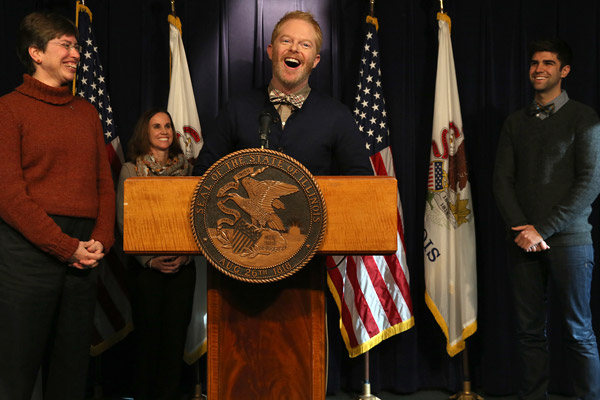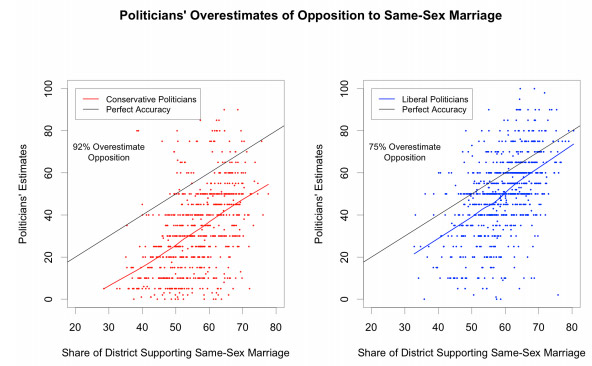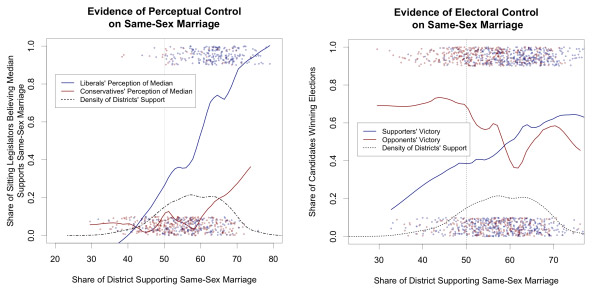
Antonio Perez / Chicago Tribune
Lt. Gov. Shelia Simon (left), Modern Family's Jesse Tyler Ferguson (center) and Ferguson's fiancé, Justin Mikita (right), January 2, 2013
A couple weeks ago my colleague Emmet Sullivan did a great post trying to game out whether the Illinois house would actually pass a gay marriage bill. Now the numbers are starting to come in: Michael Madigan says it's specifically 12 votes short; Greg Harris says it's "a bit closer."
I'm a bit shocked:
* Illinoisans back gay marriage 50-29 —Crain's/Ipsos
* Illinois Poll Finds Strong Support for Gay Marriage —Paul Simon Public Policy Institute
* New poll: Illinois may be ready for same-sex marriage —Public Policy Polling
There are obvious caveats. The Crain's/Ipsos poll is a bit of an outlier. It's more popular among younger voters, who don't vote as much. It's reductive to look at the state as a whole, because it's very popular in Chicago and the collar counties (which have most of the people) and very unpopular everywhere else.
But I can't help but view it in the context of this new working paper (PDF, via Dylan Matthews), based on "nearly 2,000 state legislative candidates' perceptions of mass opinion in their districts and recent advances in public opinion estimation that allow us to determine actual district-level opinion with precision."
The conclusion? "[C]onservative politicians systematically believe their constituents are more conservative than they actually are by over 20 percentage points, while liberal politicians also typically overestimate their constituents’ conservatism by several percentage points. A follow-up survey demonstrates that politicians appear to learn nothing from democratic campaigns or elections that leads them to correct these shortcomings."
This has some bearing on the subject at hand.

How much support does it take for gay marriage to break through? According to their data, 60 percent is where things really start to happen, on both sides of the aisle.

Around 60 percent, perception that constituents support gay marriage (left) really starts to take off for both liberal and conservative politicians. Perhaps not coincidentally, that's where supporters of gay marriage break through. But here's how the authors read that data:
in the preponderance of districts – where voters support these policies at rates of between 50% and 60% – congruent candidates have at most a 60% chance of winning while incongruent candidates have at most a 40% chance of defeat. Constituencies’ preferences do certainly express themselves in the electoral process to some extent, but in accounting for which policies their representatives will espouse they represent only a small part of the story in places where collective opinion is short of unambiguous…. [I]t appears unlikely that district-level nuance in public opinion is likely to induce control via electoral selection except when the correlation between partisanship and issue opinions in the public is exceptionally high.
Translation: candidates will err on the side of conservatism, and voting on specific issues will tend to run along the usual partisan tracks unless district-level nuance is very strong.


